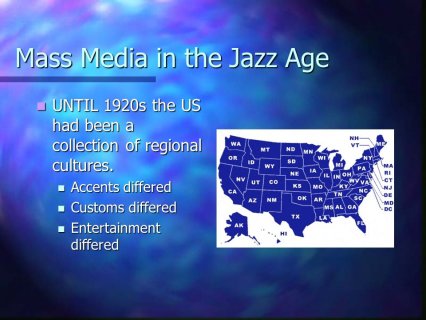
1920s mass Media
The word “medium” is defined in the dictionary as “a means of conveying something”, among other meanings. The term “masses” was originally used in the 19th Century in reference to industrialization and the emergence of a massive working class, used specifically by Karl Marx. The idea of the masses has been extended into a “collective conscience” that is used to determine what constitutes a crime, for example. The term “mass media” came to be widely used following World War II in reference to broadcast media such as television and radio with a view to reaching large populations in urban centres. Beginning in the 1920s, “mass media” was used to describe media forms that were designed to reach large audiences with shared interests, and was used for the dissemination of propaganda as well as for the dissemination of information or entertainment. Mass media includes the dissemination of broadcast programming such as television, radio, newspapers, cable, cinema, press, etc. At the end of the 20th Century, the term required reconsideration as narrowcasting became more popular and as more individuals have become producers of media and media content.
Mass media has been used for both beneficial and detrimental purposes. It was used to produce propaganda during and between the World Wars in the 20th Century. Arguably, it is used as a means of production for those in the ruling class for hegemonic purposes. In media where the producers are separate from the consumers, one might assume that consumers can be “duped” by mass media messages, although in the 21st Century, “consumers” are generally quite media-savvy, not easily duped, and increasingly are taking media into their own hands as producers. Changes in media can be seen as changing the nature of reality from one that is experienced directly to one that is mediated through the Internet, or through virtual realities, for example. Increasingly mass media is dominated by consumerism (Marcuse). It is argued that people are so barraged by mass media that they are unable to think out of the dominant ideology. In many cases this view remains, but as people contribute to the content and media forms that are available widely, individual perspectives are much more accessible. In contrast, the “informed” view is receiving less respect and this is having an impact in the field of journalism, for example. With ready access to news and views on the Internet through direct-experience reporting by individuals, and with changes in print technologies and economies, professional journalism may be less valued by some. In contrast, this individual production of media content raises concerns not about hegemony, but about ignorance and lack of perspective by the masses. A more positive perspective on uses of mass media, however, is that consumers are able to exercise more choice in recent decades with respect to how, when and which media to access and use. Many more people than ever before are able to participate in the public sphere. Now anyone can post content online and anyone may respond, even if the posting and the response are neither special nor informed. Still, these media forums increasingly...
You might also like












